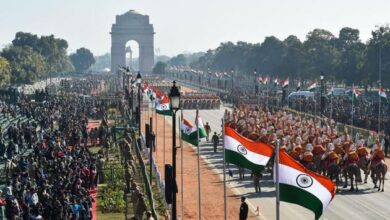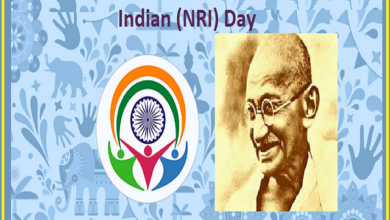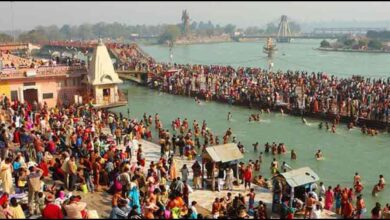Experience the enchanting allure of Nauru’s Independence Day as we explore the captivating customs and rich heritage of this hidden gem in the Pacific. Join the celebration now!
Quick Facts:
- Date: January 31
- Main Components: Flag-raising ceremonies, parades, speeches, prayers, cultural performances, sports competitions, food and crafts
- Popularity: One of the most important national holidays in Nauru
- Pairings: Constitution Day (May 17) and RONPhos Handover Day (July 1)
- Variations: None
Introduction
Nauru Independence Day is a national holiday that celebrates the independence of Nauru, an island country in the Pacific Ocean, from Australia, New Zealand and the United Kingdom on January 31, 1968. The holiday is marked by various festivities, such as competitions, food, and cultural pursuits. The holiday also reflects the history and identity of Nauruans, who have endured colonialism, war, and environmental degradation.
Background of Nauru
Nauru is a small island nation located in Micronesia, about 42 km south of the equator. The island has an area of 21 km2 and a population of about 10,800 people. The inhabitants of Nauru are divided into 12 tribes or kinship groups, each with its own chief and territory. The origin of Nauruans is uncertain, but some evidence suggests that they are descendants of Polynesian and Micronesian migrants who arrived on the island between 1000 and 1300 CE. Before European contact, Nauruans lived by fishing, farming, and interisland warfare.
Related: Fred Korematsu Day In Florida 2023
Colonial History of Nauru
The first European to visit Nauru was John Fearn, a British whaling captain, in 1798. He named the island Pleasant Island and described it as a port of call for vessels in the Pacific. In the 19th century, Nauru was visited by beachcombers, traders, and missionaries, who introduced firearms, alcohol, diseases, and Christianity to the island. In 1888, Nauru became a protectorate of Germany as part of its colonial expansion in the Pacific. Germany established an administration system and a port on the island. In 1900, a British company discovered phosphate deposits on Nauru and began mining them in 1906 with the consent of Germany and the chiefs of Nauru. Phosphate is a valuable mineral used for fertilizer and explosives. In World War I, Nauru was occupied by Australian troops in 1914 and became a mandate territory of the League of Nations under Australian administration in 1920. Australia continued to exploit the phosphate resources of Nauru with the cooperation of Britain and New Zealand under the British Phosphate Commission (BPC). In World War II, Nauru was invaded by Japanese forces in 1942 and suffered from bombing, starvation, and forced labour. About 1,200 Nauruans were deported to Truk (now Chuuk Lagoon) in Micronesia, where many died from disease and malnutrition. Nauru was liberated by Australian forces in 1945. After World War II, Nauru became a trust territory of the United Nations under Australian administration again. The BPC resumed phosphate mining on the island with little regard for the environment and the welfare of the Nauruans.
Independence Movement of Nauru
- In the 1950s and 1960s, Nauruans began to demand more autonomy and self-government from Australia. They formed political parties and elected representatives to voice their grievances and aspirations.
- The leader of the independence movement was Hammer DeRoburt, a chief of one of the tribes and a former policeman. He advocated for the nationalization of the phosphate industry and the compensation for the damages caused by mining.
- In 1964, DeRoburt led a delegation to the UN to present the case for Nauru’s independence. He argued that Nauruans had the right to determine their own future and to control their own resources.
- In 1966, Australia agreed to grant self-government to Nauru and to transfer the ownership of the phosphate industry to the Nauruan government. The Nauru Phosphate Corporation (NPC) was established to manage the mining operations and revenues.
- On January 31, 1968, Nauru became an independent republic with DeRoburt as its first president. It was recognized by Australia, New Zealand, Britain, and other countries as a sovereign state.
Celebration of Nauru Independence Day
- Nauru Independence Day is one of the most important holidays in the country. It commemorates the achievement of independence and honors the sacrifices and struggles of the past generations.
- The holiday is celebrated with various activities, such as flag-raising ceremonies, parades, speeches, prayers, and cultural performances.
- The holiday also features sports competitions, such as volleyball, tug of war, relay race, and others. Sports are a popular pastime and a source of pride for Nauruans, who have produced several Olympic athletes and weightlifters.
- The holiday also showcases the traditional food and crafts of Nauru, such as coconut, fish, pandanus, and weaving. Food is an important aspect of Nauruan culture and hospitality, but it has also contributed to the high rate of obesity and diabetes among the population.
- The holiday also provides an opportunity for Nauruans to reflect on their current situation and challenges, such as the environmental degradation caused by phosphate mining, the economic dependence on foreign aid, the social problems of unemployment and crime, and the political instability and corruption.
Related: Fred Korematsu Day In California 2023
Conclusion
Nauru Independence Day is a celebration of the history and identity of Nauru, an island nation that has overcome colonialism, war, and exploitation to achieve independence and sovereignty. The holiday is marked by various festivities that highlight the culture, sports, and achievements of Nauruans. The holiday also reminds Nauruans of the need to address the issues and difficulties that they face in the present and the future.



